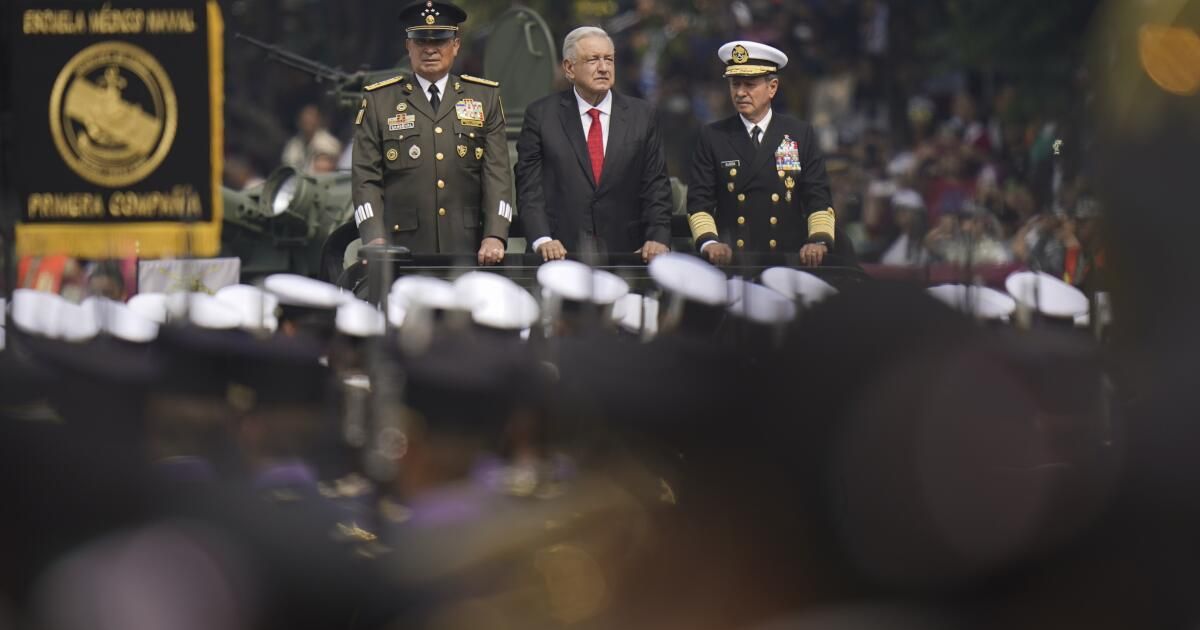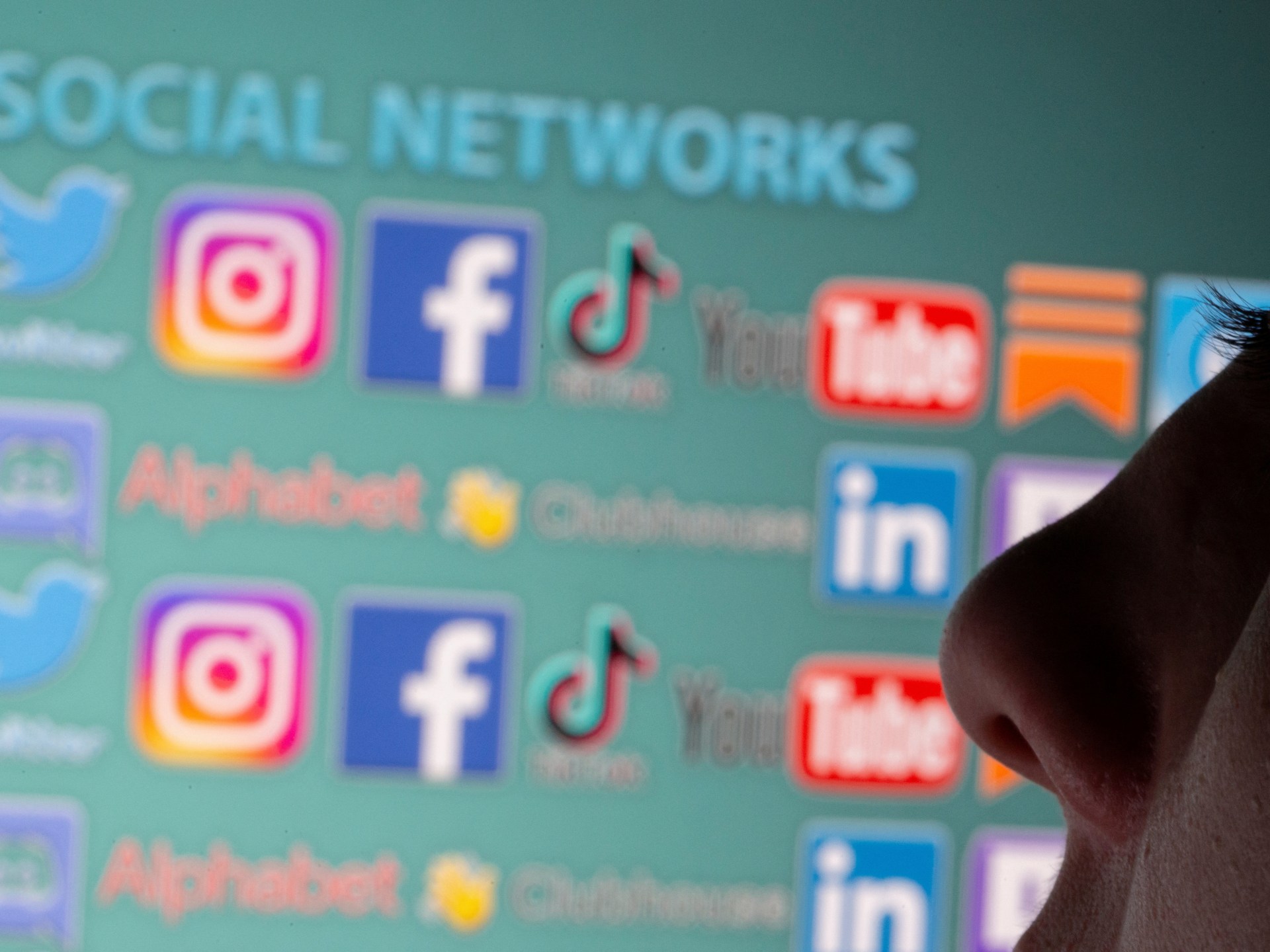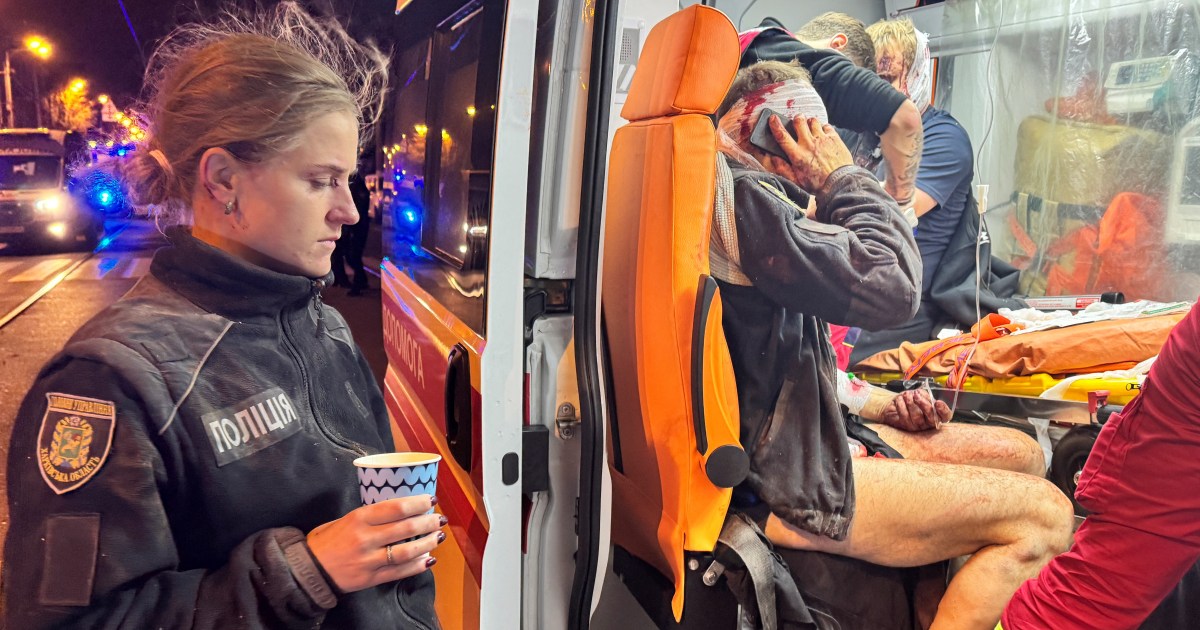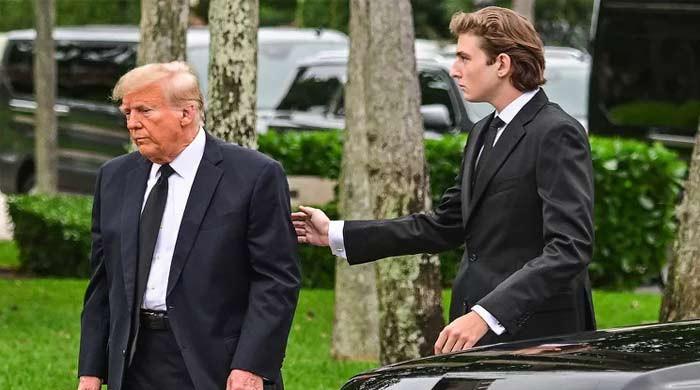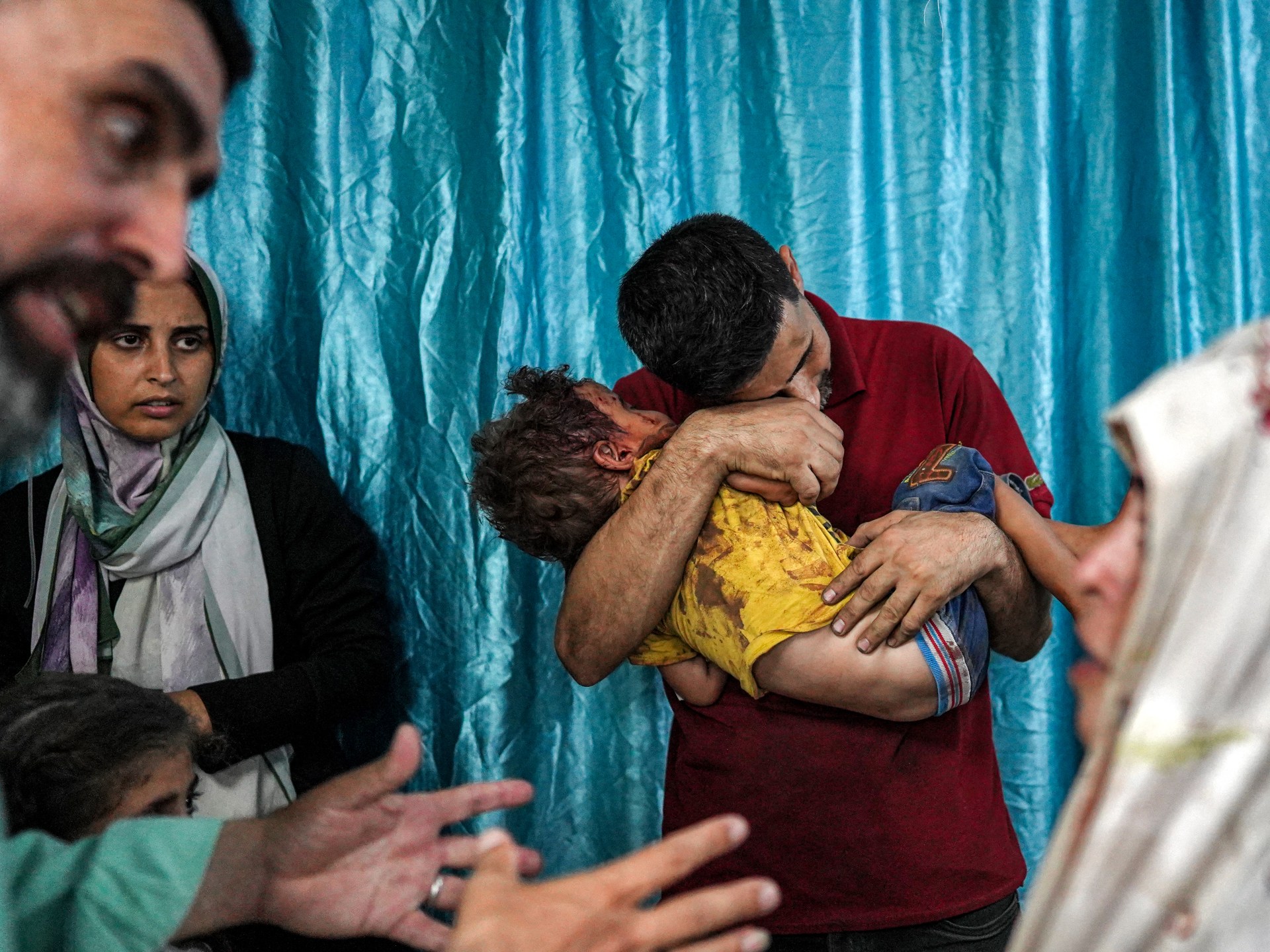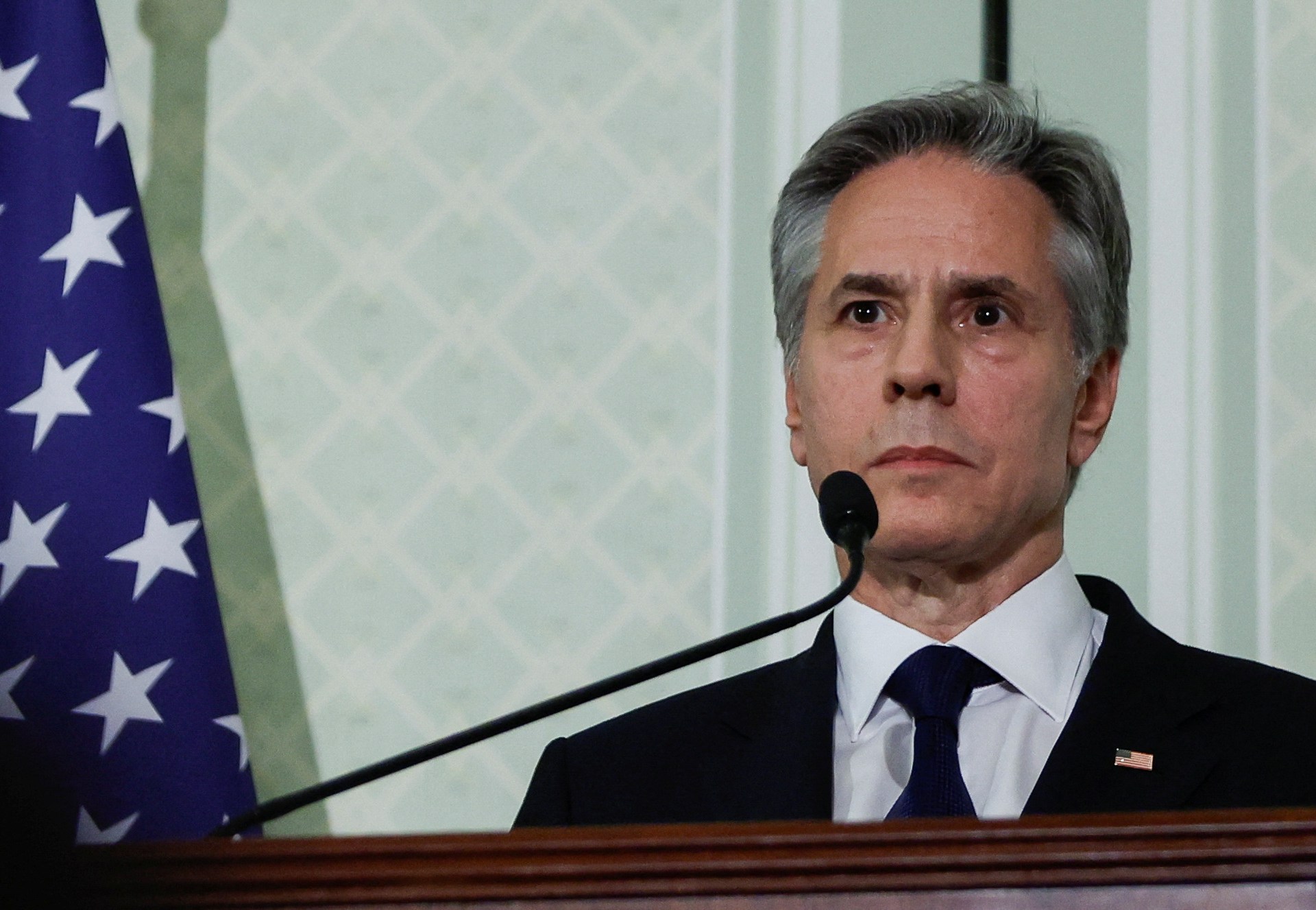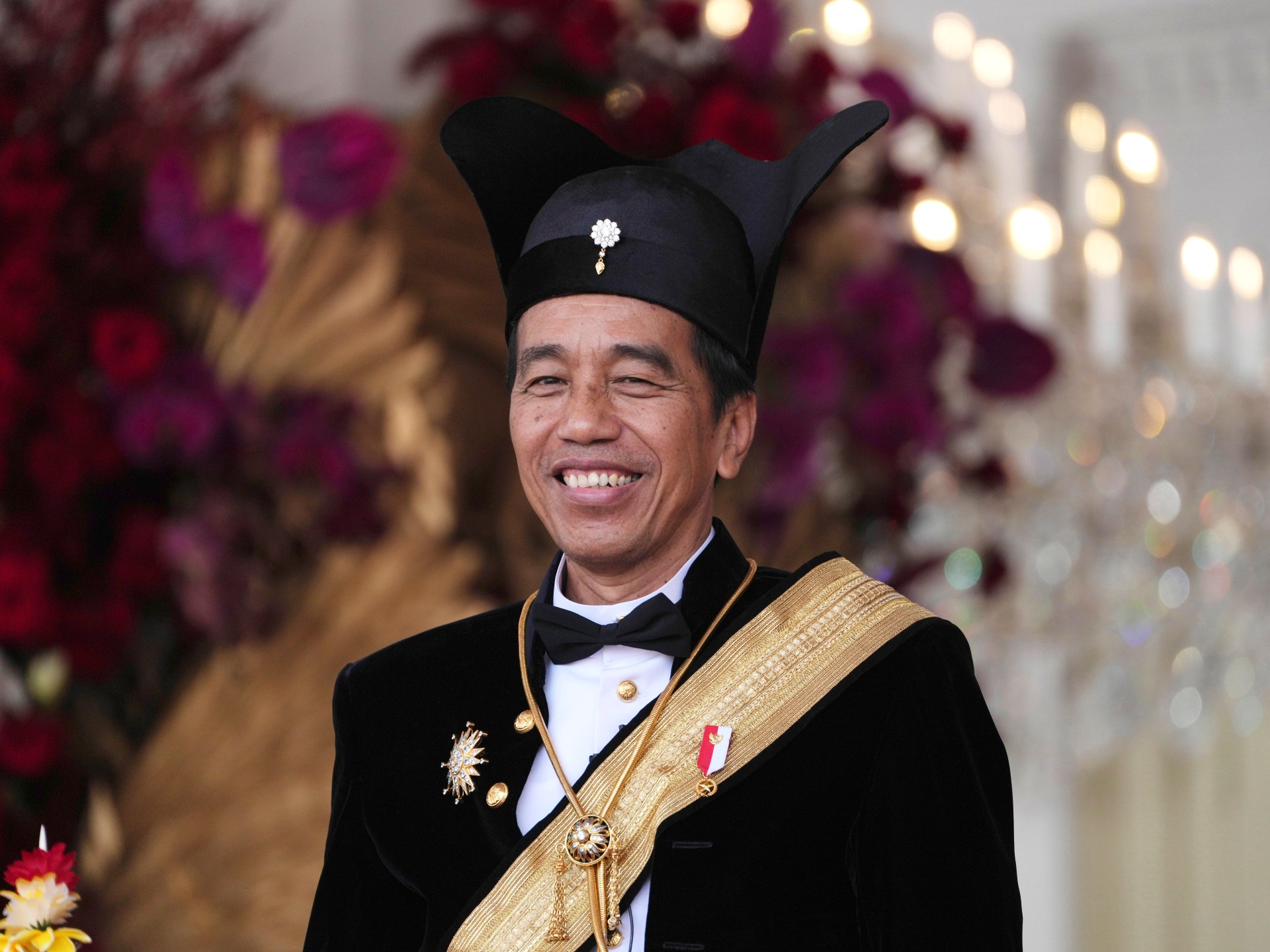Mexican President Andrés Manuel López Obrador has dismissed allegations by his country's disgraced former security chief — jailed in the United States and facing a possible life sentence for corruption — that he has ties to drug cartels.
“It’s very simple,” López Obrador told reporters Wednesday at his regular morning press conference. “Show the evidence.”
The president denied the allegations that emerged in a handwritten letter from Genaro García Luna sent Tuesday by his lawyer to a handful of media outlets, including The Times. García Luna, a former public security secretary convicted last year of accepting millions in bribes from leaders of the Sinaloa cartel, said the current Mexican leader has connections to organized crime.
Former Mexican Public Security Secretary Genaro Garcia Luna, pictured here in 2009, is jailed in the United States and faces a possible life sentence for corruption.
(Darío López-Mills / Associated Press)
García Luna, 56, is one of the highest-ranking former Mexican officials convicted of corruption in a U.S. court. He did not present any evidence to back up his allegations, but said it was “public knowledge” that López Obrador has ties to “drug trafficking leaders and their families.”
Garcia Luna's attorney, Cesar de Castro, who also provided an English translation of the text, said his client asked to publish the statement “given recent events in Mexico and here in the United States.”
García Luna is set to be sentenced Oct. 9 in U.S. District Court in Brooklyn, New York, before the judge who sentenced Joaquín “El Chapo” Guzmán to life in prison in 2019. García Luna, who witnesses say accepted bribes to favor El Chapo’s cartel while overseeing federal law enforcement operations under then-President Felipe Calderón, could face a similar fate.
López Obrador, 70, whose six-year term ends on Oct. 1, has repeatedly denied reports that he received campaign funds from drug traffickers.
“In my decades as a leader, I have endured many accusations,” the president said, noting that none have been proven.
He challenged García Luna to present evidence of corruption, alleging that the former security chief worked for previous governments that “spied” on him as a long-time leader of the political opposition.
“He writes that there is evidence, there are videos, calls, audios,” said the president, citing allegations in the letter from the former official. “It is very simple, he should make them public. He has everything.”
The president has accused Calderon of committing electoral fraud to narrowly defeat him in the 2006 presidential race and of subsequently presiding over a “narco-state,” with Garcia Luna as his chief corrupt ally in law enforcement.
Calderón has repeatedly denied the allegations.
Meanwhile, President-elect Claudia Sheinbaum, who will take office on October 1, accused the former security chief of participating in a “political” act designed to “smear” the reputation of his former political patron.
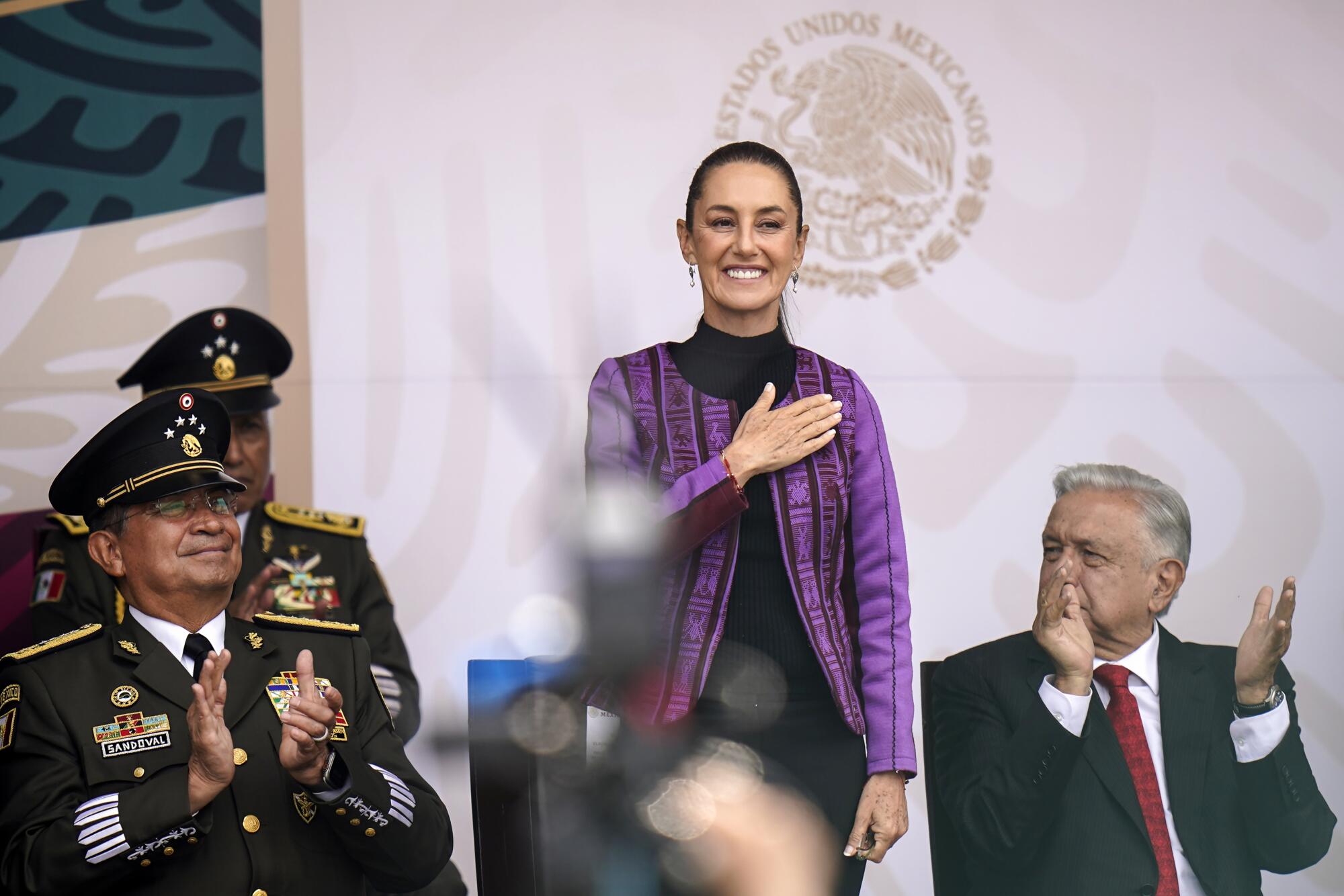
President-elect Claudia Sheinbaum, pictured at an Independence Day parade this week, accused García Luna of participating in a “political” act designed to “smear” the reputation of President Andrés Manuel López Obrador, her political patron.
(Félix Márquez / Associated Press)
“Absolutely false,” Sheinbaum said of the accusations. “The president has never been involved in anything that has to do with any criminal.”
Evidence presented at García Luna’s trial showed that he worked closely with U.S. authorities during his years in public office, dating back to the early 2000s, when then-President Vicente Fox put him in charge of a newly created agency that was the Mexican equivalent of the FBI. He later rose to a position in Calderón’s cabinet, and photos released in connection with his trial show him meeting with prominent U.S. officials, including then-President Obama.
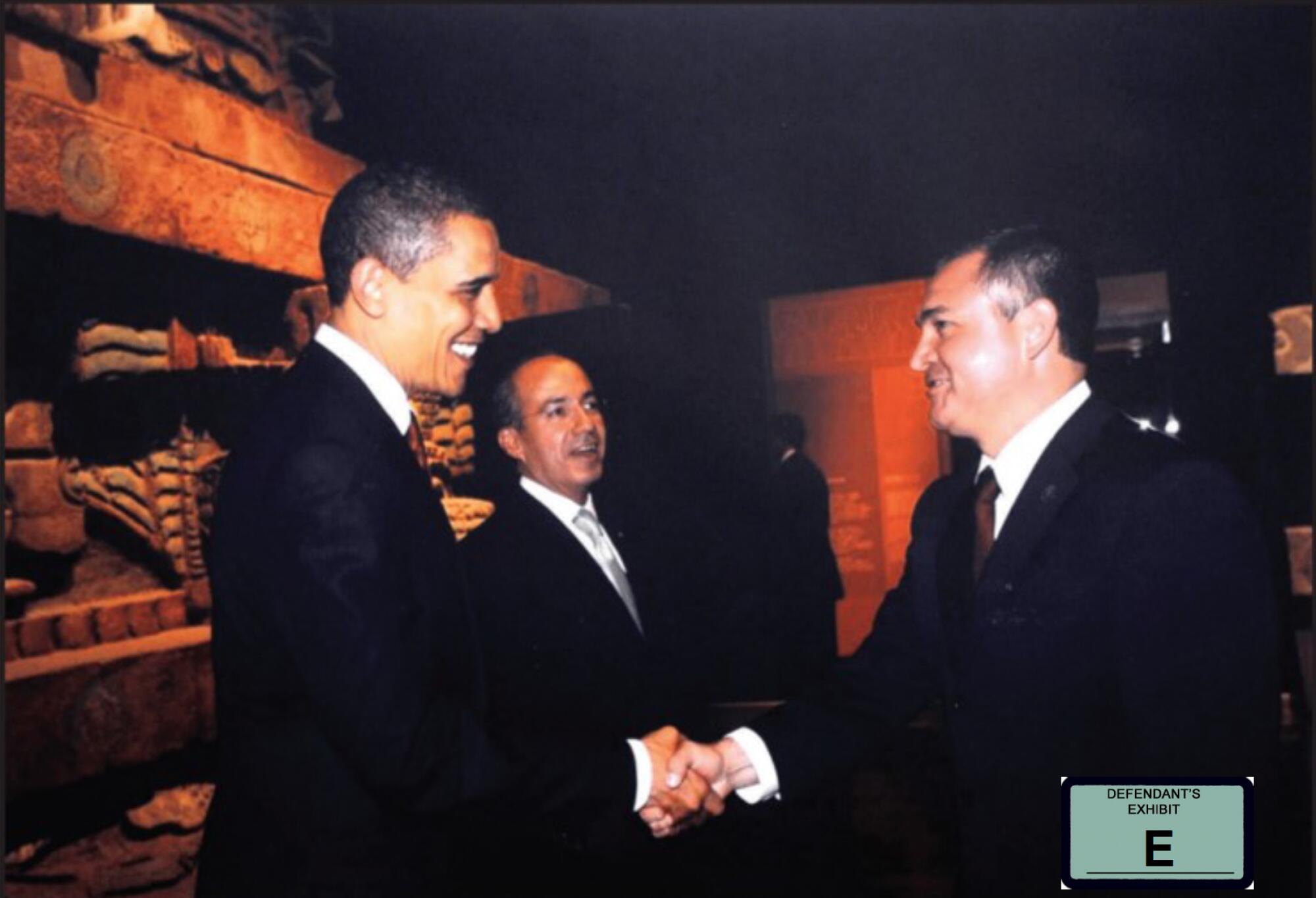
Then-President Obama greets Genaro García Luna. Next to them is the then-President of Mexico, Felipe Calderón.
(United States defense exhibition vs. García Luna)
Several former high-ranking cartel members, who cooperated in exchange for reduced sentences in their own cases, testified that García Luna and other top officials in Mexico’s federal police were in the hands of drug lords. García Luna maintained in his letter that investigators had not found “a single peso-dollar” in bribes in their bank accounts.
Witnesses at the trial included a brother of Sinaloa cartel co-founder Ismael “El Mayo” Zambada, who was asked during cross-examination whether he had knowledge of any bribes paid to López Obrador.
Jesús “El Rey” Zambada denied making any payments directly to the current president, but said under questioning that he had given cash to a lawyer to help finance López Obrador’s 2006 campaign.
“I remember paying [the lawyer] money, which according to him, was for the campaign, but not [for] pay López Obrador,” Zambada testified.
El Mayo Zambada, 76, was arrested by U.S. agents in late July along with El Chapo’s 38-year-old son. Zambada has claimed he was tricked into attending what he believed was a meeting with political leaders in Sinaloa state, but was “forcibly kidnapped” by Joaquin Guzman Lopez and flown to a small airport near El Paso.
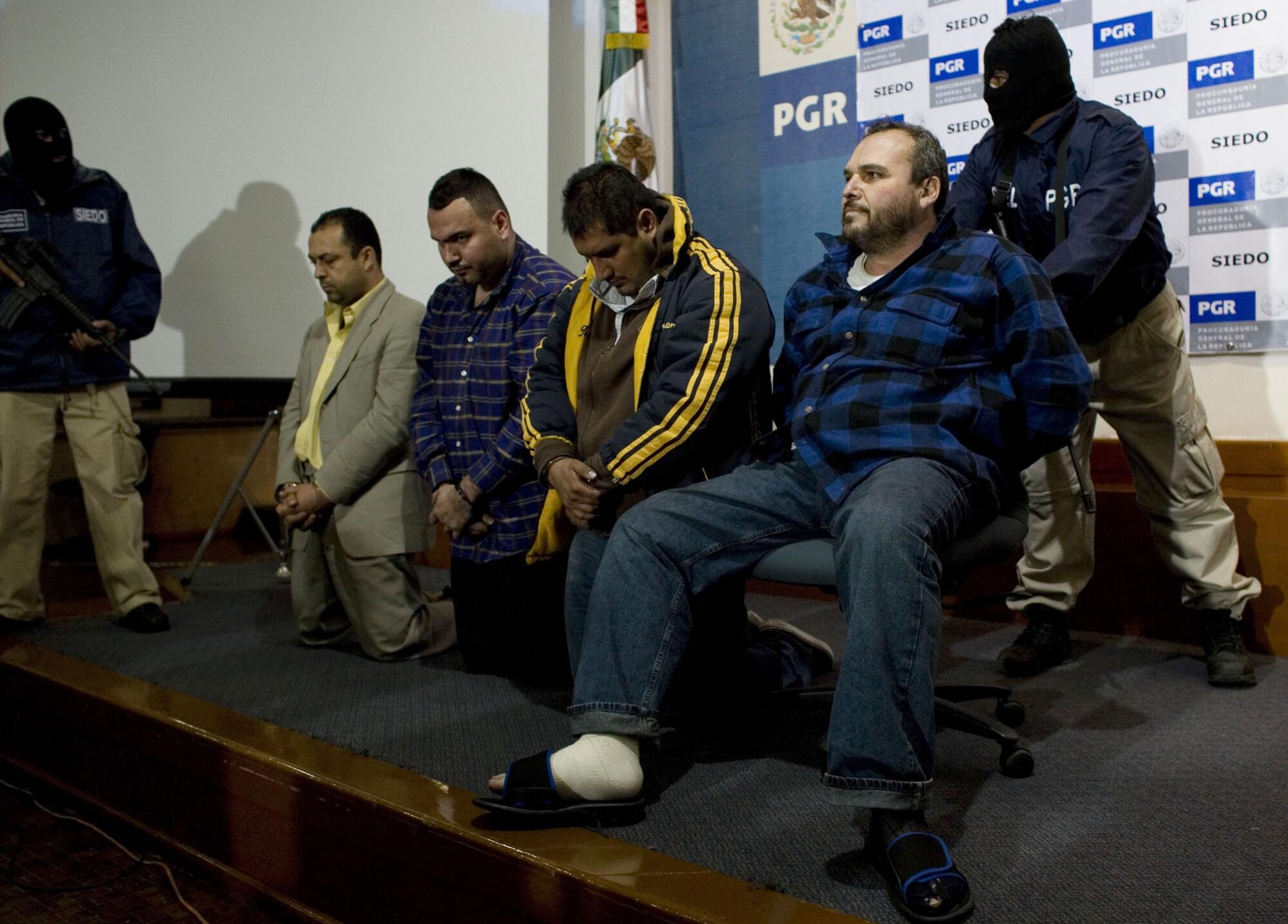
Jesus “El Rey” Zambada, right, and other alleged members of the Sinaloa cartel appear before the media in Mexico City in 2008.
(Alexandre Meneghini / Associated Press)
After leaving office, García Luna moved to the United States and was running a Miami-based private security company when he was arrested in December 2019. He claimed that federal prosecutors in New York initially offered him a deal that would have allowed him to walk free after six months and receive “financial benefits” in exchange for his cooperation in other investigations — a deal he refused to accept.
A spokesman for the U.S. attorney's office in Brooklyn, which handled his prosecution, declined to comment.
McDonnell reported from Mexico City and Hamilton from San Francisco. Special correspondent Cecilia Sanchez Vidal in Mexico City contributed to this report.

